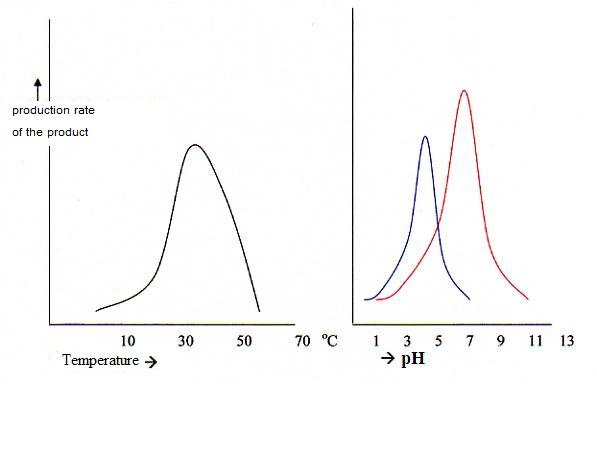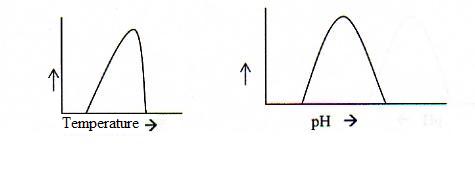

| Pepsine | 1,5 | in the stomach |
| Amilase | 6,6 | in saliva |
| Lipase | 8,0 resp. 7,0 | in the pancreas and in the bowels |
| Saccharase | 7,0 | in the stomach |
| where: | enzym | pH-optimum |
| in saliva | amilase and maltase | 6,6 |
| in the stomach | peptase, rennase | 1,5 - 4 |
| in the pancreas | amilase, lipase, tryptase, polipeptidase | 6,6 - 9 |
| in the bowels | maltase, saccharase, lactase, ereptase | 6,6 - 8,5 |